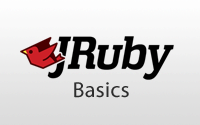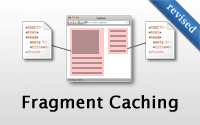Categories
- Active Record
- Active Resource
- Active Support
- Administration
- Ajax
- APIs
- Authentication
- Authorization
- Background Jobs
- Caching
- Code Walkthrough
- Controllers
- Debugging
- Deployment
- eCommerce
- Forms
- Mailing
- Models
- Performance
- Plugins
- Production
- Rack
- Rails 2.0
- Rails 2.1
- Rails 2.2
- Rails 2.3
- Rails 3.0
- Rails 3.1
- Rails 3.2
- Rails 4.0
- Refactoring
- Routing
- Search
- Security
- Testing
- Tools
- Views
Applied Filters:
Performance x
Trinidad
Trinidad is designed to serve JRuby web applications and gives you the power of Java while still keeping the feel of traditional Rails deployment. Here I show how to setup a Capistrano recipe, configure it, and more.
(15 minutes)
JRuby Basics
JRuby is a polished and stable Ruby implementation. Here I show the basics of setting it up and executing Java from within Ruby. I also see how it compares with MRI at running threads.
(10 minutes)
Memoization (revised)
Memoization is a convenient way to cache a method's response. Here I show several ways to accomplish this from scratch since the ActiveSupport::Memoizable module has been deprecated.
(9 minutes)
Zero-Downtime Deployment
Here I show how to accomplish zero-downtime deployment using Unicorn. I also cover gotchas when working with migrations and how to put up a maintenance page when you do need to take down the site.
(12 minutes)
Bullet
Bullet will notify you of database queries that can potentially be improved through eager loading or counter cache column. A variety of notification alerts are supported.
(6 minutes)
Client-Side Performance
Optimizing Rails performance can only take you so far. The client-side plays a big part in how fast a page feels. Here I show many tools that can help make your apps faster than ever.
(14 minutes)
MiniProfiler
MiniProfiler allows you to see the speed of a request conveniently on the page. It also shows the SQL queries performed and allows you to profile a specific block of code.
(9 minutes)
Thread-Safety
The config.threadsafe! option will likely be enabled by default in Rails 4.0. Here you will learn what this option does, how it affects production, and some tips on thread safety.
(10 minutes)
Rails Modularity
Rails is a modular framework allowing you to include only what you need. Here I show how the smallest Rails app works, and then I take a look at how to whittle down a full Rails application stack.
(13 minutes)
Fragment Caching (revised)
If you need to cache a certain section of a page instead of the entire page, fragment caching is the way to go. Learn how caching is stored, how to create auto expiring caches, and more.
(9 minutes)










